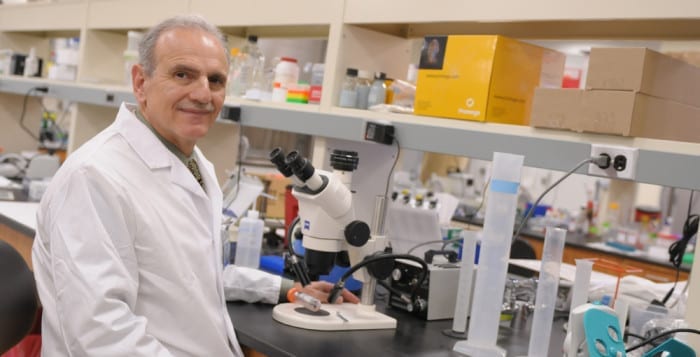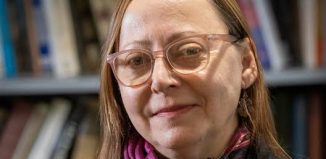Hannun steps down as Stony Brook Cancer Center director

Stony Brook University’s Dr. Yusuf Hannun, an internationally recognized scientist and a leader at the school for a decade, is stepping down as head of the Stony Brook Cancer Center, Dr. Hal Paz, chief executive officer of Stony Brook Medicine announced in an email.
In the email addressed to SBM leaders, Paz thanked Hannun for his leadership, recognizing his contributions to cancer research and to the Stony Brook Cancer Center.
Paz suggested that Hannun would continue to serve as director until the university, which is conducting a national search, finds someone to assume that responsibility.
SBM officials maintained in a statement that the “mission remains the same: to provide our patients with optimal treatment and care.”
Stony Brook is seeking a candidate with “exceptional leadership skills, an illustrious career in cancer research, and who is at the forefront of cancer medicine,” SBM officials added.
Paz shared his gratitude to Hannun for his “dedication to our mission and for shepherding [the cancer center] on the first leg of its journey to attaining [National Cancer Institute] status,” he wrote in his email.
Stony Brook will continue to seek NCI designation. The National Cancer Institute recognizes centers that “meet rigorous standards for transdisciplinary, state-of-the-art research focused on developing new and better approaches to preventing, diagnosing and treating cancer,” according to the NCI web site.
Cold Spring Harbor Laboratory has such a designation.
Paz indicated in the email that Hannun, who has earned numerous accolades and has blazed a trail in the field of sphingolipids, inflammation and cancer therapeutics, would remain as a part of the Stony Brook Medicine faculty.
Hannun previously worked at the Medical University of South Carolina, serving as senior associate dean and distinguished university professor of Biomedical Research and chairman of the Department of Biochemistry and Molecular Biology for 14 years.
TBR News Media honored the work of Hannun and his late wife, Lina Obeid, in a People of the Year issue in 2015.
Tony Futerman, the Joseph Meyerhoff professor and chair of biochemistry at the Weizmann Institute of Science in Rehovot, Israel, said Hannun “pushed the field into the modern age” and suggested he had been “innovative for 30 years.”
Hannun recruited numerous faculty to Stony Brook since his arrival, many of whom shared their appreciation for the opportunity to work with and for the well-regarded scientist.
Earlier this year, Mehdi Damaghi, assistant professor in the Department of Pathology at the Renaissance School of Medicine at Stony Brook University, said he chose Stony Brook because of the depth of cancer sciences, citing the work of Hannun, Laufer Center Director Ken Dill and Pathology Department Chair Ken Shroyer.
Paz wrote that Hannun has been “instrumental in building the infrastructure to support the growth of the [cancer center], and his impact will be felt for years to come.”
Hannun holds numerous National Institutes of Health grants and has an H index of 148, which is “an exceptional metric that evaluates the cumulative impact of an author’s scholarly output and performance.”
An H index measures how much other scientists cite a researcher’s work.
“We are grateful that Dr. Hannun will remain in his leadership role as we search for a successor,” SBM officials added.






